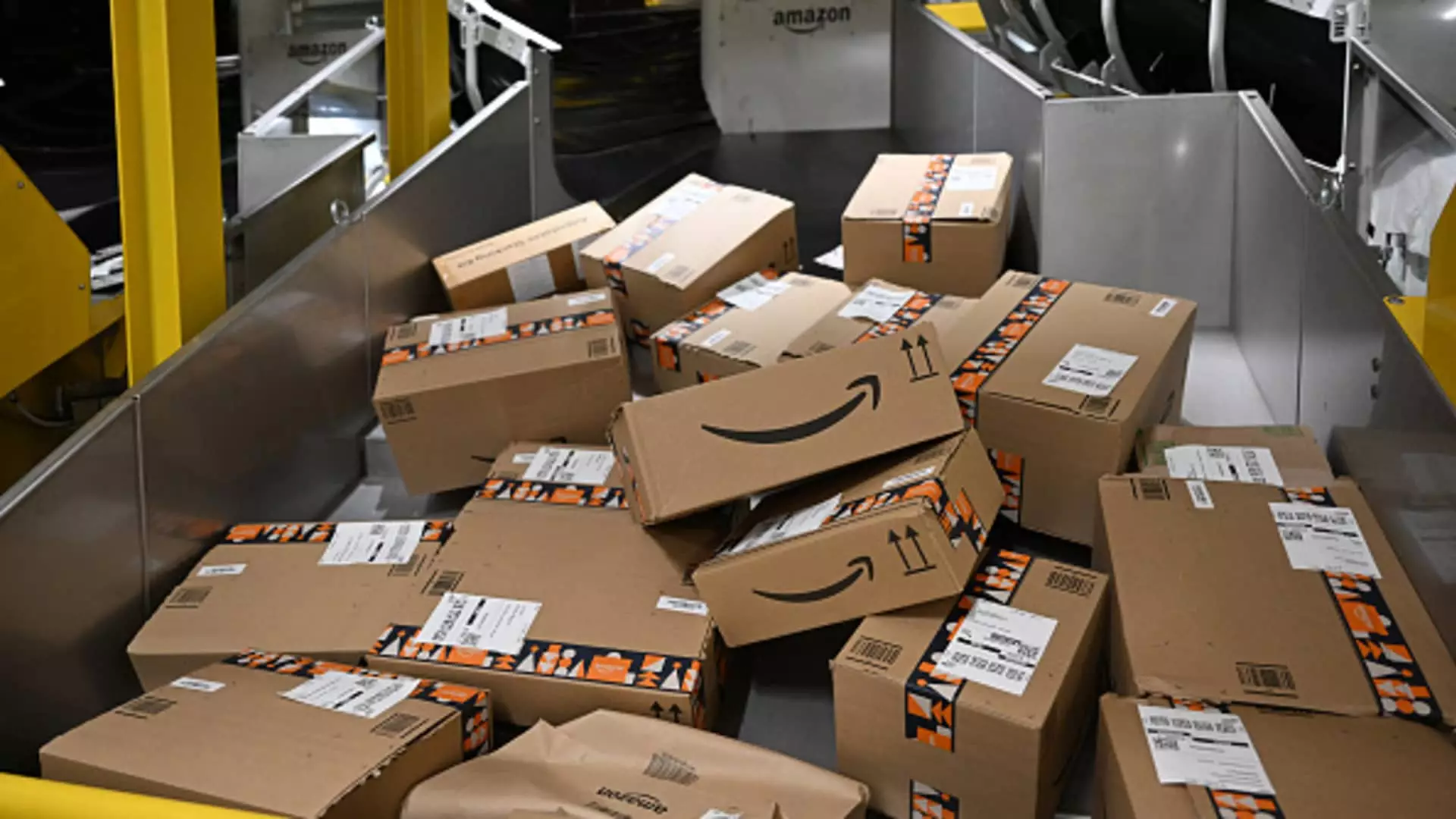In an alarming development that could drastically reshape the landscape of online retail, Germany’s Federal Cartel Office has raised serious questions about Amazon’s treatment of third-party sellers. With its advanced pricing algorithms and opaque marketplace rules, Amazon has positioned itself not just as a marketplace but as a gatekeeper for competitiveness. This unsolicited interference poses significant risks not only to the merchants using the platform but to the principles of fair competition itself.
Amazon’s aggressive pricing strategies have led to a scenario where products deemed “too expensive” or “not competitive” face demotion in search results or outright removal from prime visibility slots—like the coveted buy box—leaving merchants struggling to maintain their sales viability. This is not merely corporate policy; it constitutes a direct attempt to manipulate the market, influencing what consumers see and buy, often at the expense of fair access for smaller competitors.
Chilling Effects on Competition
The implications of this type of market control cannot be understated. When Amazon, which also sells its products on the same platform, exerts such influence over pricing, it fundamentally shifts the competitive landscape. Merchants on the platform are not merely participating in a free market, they are at the mercy of Amazon’s policies, which prioritize its interests over those of individual sellers. Andreas Mundt, the president of the Federal Cartel Office, painted a stark picture when he remarked that these pricing practices raise significant doubts from a competition perspective. The whole model under which Amazon operates risks creating an environment where competitive pricing is no longer rewarded; rather, it is manipulated.
This is concerning because when competitors are nudged out based on arbitrary price assessments rather than quality or service, the entire marketplace suffers. The ideal scenario of a vibrant ecosystem teeming with unique products at various price points becomes dangerously monochromatic—a distortion of what free-market principles should encapsulate.
The Amazon Defense: An Effort to Protect Consumers?
Amazon’s response to these allegations has been staunchly defensive. The company has asserted that any changes to its pricing mechanisms would ultimately harm customers by offering them “uncompetitive or abusive pricing.” This argument seems disingenuous at best. It relies on the presumption that Amazon alone has the insight and capability to discern competitive pricing. However, when a single entity has such power over pricing mechanisms and visibility, it inherently compromises the very competition it purports to support.
Furthermore, the concern voiced by the Cartel Office resonates deeply: the practices in question serve to deter not only third-party sellers but also potential competitors from thriving. If Amazon can dictate terms with a heavy hand, what motivation do other retailers have to offer consumers better prices or innovative products? The fear of being eviscerated by Amazon’s marketplace rules can stifle innovation and limit choices for consumers.
Moving Towards Regulation: A Necessary Measure?
In the wake of the Federal Cartel Office’s warnings, it becomes crucial to ponder whether tougher regulations are needed to counterbalance Amazon’s dominant position. Regulatory bodies must put consumer welfare and fair competition at the forefront of their agendas. The ongoing investigation by both the European Union and the U.S. Federal Trade Commission serves as a call to action: If left unchecked, Amazon’s practices could establish a perilous precedent for future e-commerce operations.
Moreover, a successful America with a thriving online marketplace is one where competition isn’t merely tolerated but robustly enforced. Ensuring that Amazon’s pricing structures do not suffocate competition would be an essential step in preserving consumer choices and securing fair business practices in an increasingly digital economy.
In the context of this looming battle between regulation and corporate power, the question becomes not just about Amazon but about how we envision fair commerce itself. If the platforms that facilitate our retail experiences prioritize pricing and visibility at the expenses of fair treatment, the marketplace becomes a place where consumer interests are forsaken in favor of corporate machinations. This isn’t just about a company—it’s about the foundation of trust and integrity in a marketplace that should serve everyone fairly.


Leave a Reply